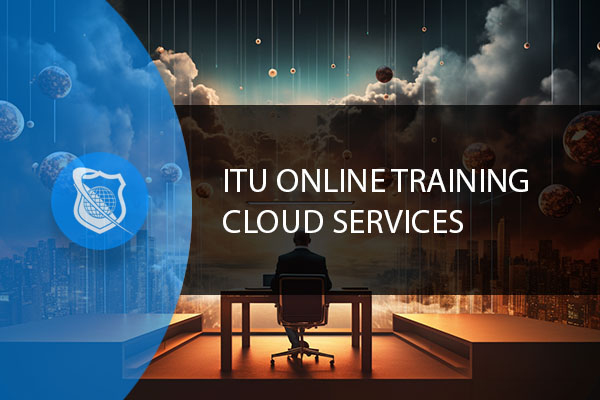What is One-Way Encryption?
Definition: One-Way Encryption One-way encryption, also known as hashing, is a cryptographic process that transforms data into a fixed-size string of characters, which is typically a hash code. This process

Are you looking to getting started in IT but don’t know where to begin? Starting a career in the tech industry can be daunting, with so many different programs and software out there. But fear not! With the right education and training requirements, job search strategies, and resources for further learning, you’ll soon find yourself ahead of your competition. At ITU Online Training Library we provide all that is necessary for getting started in IT: from introductory courses on technology basics to advanced modules covering emerging technologies like cybersecurity or project management – everything needed for a successful transition into this ever-evolving field. So why wait any longer? Let’s dive into what it takes to build your career getting started in IT today!

What does it mean to say, getting started in IT? First, Information Technology (IT) is a broad field that encompasses the use of computers, networks, and other digital technologies to store, process, and communicate data. It includes a variety of disciplines such as software engineering, web development, network security, database management, cloud computing and more. IT professionals are responsible for designing systems that enable organizations to achieve their goals by leveraging technology solutions.
There are many different types of careers in the Information Technology field. Software engineers develop applications and programs for businesses or individuals using programming languages such as Java or C++. Web developers create websites from scratch using HTML/CSS coding languages while also ensuring they are optimized for mobile devices.
Network security specialists protect computer networks from malicious attacks by monitoring system activity and responding quickly to any threats detected. Database administrators manage large databases containing customer information or other important data used by an organization, while cloud computing experts design secure infrastructures on which companies can store their data remotely over the internet instead of on physical servers located in-house.

In partnership with Udemy and Vision Training Systems, get the newest A+ training course at the best price
The updated 220-1201 & 220-1202 exams deliver cutting-edge skills for today’s tech-driven world—covering essential hardware, software, networking, and security knowledge.
The getting started in IT are numerous; it offers competitive salaries along with job stability due to its ever-growing demand across industries worldwide. Additionally, there is plenty of room for growth within this field since new technologies emerge every day providing ample opportunities for advancement into higher positions such as project manager or chief technology officer (CTO). Lastly but most importantly, working in IT allows you to stay up-to-date with all the latest advancements happening around us, making it an exciting career choice.
The IT field is an ever-evolving and exciting industry to be part of, with a wide range of opportunities available. Getting started in IT, it’s important to understand the education and training requirements needed for success – which we’ll discuss in the next section.
Key Takeaway:
Working in IT offers competitive salaries, job stability, and room for growth due to its ever-growing demand across industries. It also provides access to cutting-edge technologies and allows individuals to exercise creativity as they solve complex problems with innovative solutions.
A degree in information technology or a related field is typically required in getting started in IT. Depending on the position, employers may also require certifications such as CompTIA A+, Network+ or Security+. These certifications demonstrate an individual’s knowledge of specific technologies and their ability to use them effectively. Additionally, some positions may require specialized degrees such as computer science or software engineering.
Online Learning Platforms: There are numerous online learning platforms available for those looking to gain new skills in the IT field. Many of these platforms offer courses that cover topics from basic coding languages to more advanced concepts like cybersecurity and cloud computing.

In partnership with Udemy and Vision Training Systems, get the newest A+ training course at the best price
The updated 220-1201 & 220-1202 exams deliver cutting-edge skills for today’s tech-driven world—covering essential hardware, software, networking, and security knowledge.
Professional development opportunities can help individuals stay up-to-date with industry trends and hone their skillset even further in getting started in IT. These opportunities range from attending conferences and seminars to joining professional organizations like ISACA or IEEE Computer Society which provide access to resources such as webinars, white papers, publications, etc., that can be used for continuing education purposes and a great way if you are getting started in IT. Additionally, many companies offer tuition reimbursement programs that allow employees to pursue additional training while being reimbursed by their employer for part of the cost associated with it.
With the right education and training, you can set yourself up for success in the IT field. Next, we’ll look at job search strategies to help you find your ideal position as you are getting started in IT.
Networking is an essential part of any job search and a critical component of getting started in IT. It can help you make connections, learn about potential opportunities, and build relationships with key players in the industry. To get started, attend events related to your field or reach out to people who work in the same area as you. You can also join professional organizations and online communities that are specific to your career path.
Resume Writing Advice: When writing a resume for IT jobs, it’s important to focus on highlighting your technical skills and experience, especially when you are getting started in IT. Make sure to include details such as certifications, programming languages used, software development tools utilized, etc., so employers know exactly what you bring to the table. Additionally, keep it concise, and don’t forget to proofread before submitting.
Preparing for an interview is critical when getting started in IT and applying for IT positions since they often require more technical knowledge than other fields do. Before attending an interview, be sure to research the company thoroughly so you have a good understanding of their products/services and goals; this will help you answer questions more confidently during the meeting. Additionally, practice answering common interview questions ahead of time so that you feel prepared to go into it.
Having a well-crafted resume and networking strategy is essential to finding the right job when you are getting started in IT. Now, let’s take a look at how to build your career in this field by developing your skillset, keeping up with industry trends, and staying ahead of the competition.

Your career in information technology last for years. Technology changes rapidly. An ITU Online IT Training subscription offers you flexible and affordable IT training. With our IT training at your fingertips, your career opportunities are never ending as you grow your skills.
Plus, start today and get 30 days for only $1.00 with no obligation. Cancel anytime.
advance in the IT field. Investing time and effort into learning new technologies, honing existing skills, and expanding your knowledge base can help you stand out from other candidates when applying for jobs or promotions. Consider taking online IT courses or attending workshops that focus on specific areas of expertise such as coding languages, software development, cybersecurity, or project management.
Keeping Up with Industry Trends: Technology changes rapidly so it’s important to keep up with industry trends if you want to remain relevant in the IT field, especially if you are getting started in IT. Read trade publications and blogs regularly to stay informed about emerging technologies and best practices. Attend conferences or seminars related to your area of interest where you can network with professionals who are already working in the industry.
To stay ahead of the competition, it is important to be proactive rather than reactive when it comes to developing your career path and getting started in IT. Take initiative by seeking out opportunities that will allow you to gain experience such as internships or volunteer positions at local organizations. Additionally, consider joining professional organizations which offer resources for networking events and mentorship programs that can provide valuable insights into how successful people have navigated their careers within the IT sector
With the right knowledge, resources, and support, you can build a successful career in IT. Now let’s explore some of the resources available to help you on your journey.
When it comes to learning and advancing in the IT field, there are a variety of resources available to help you stay up-to-date on the latest technologies and trends. Professional organizations and associations, online communities and forums, as well as mentorship programs can all provide valuable support for those looking to further their knowledge in this area.
Professional Organizations and Associations: Joining professional organizations or associations is an excellent way to stay informed about industry developments. Many of these groups offer access to educational materials such as webinars, seminars, conferences, workshops, publications, newsletters etc., which can be invaluable when it comes to staying current with new technologies. Additionally, many of these groups also have job boards that list open positions within the industry. Examples include CompTIA (Computing Technology Industry Association), ISACA (Information Systems Audit & Control Association), and PMI (Project Management Institute).
Online communities provide an opportunity for members from around the world who share similar interests or goals to connect with each other virtually through discussion threads or chat rooms. This type of platform allows users to ask questions related specifically to their areas of interest while receiving feedback from others who may have already gone through similar experiences or challenges they are facing now. Popular examples include Reddit’s “r/ITCareerQuestions” subreddit dedicated solely towards answering career-related questions within IT fields as well as Stack Overflow which focuses more on programming language-specific topics but also includes general discussions regarding development processes among other things.
Key Takeaway: Professional organizations, online communities, and mentorship programs are valuable resources for those looking to learn more about the IT field. Examples include CompTIA, ISACA, PMI, Reddit’s “rITCareerQuestions” subreddit, and Stack Overflow.
Getting started in IT can be a great career path for those looking to specialize in cybersecurity, cloud computing, or help desk roles. Over 90% of IT skills and jobs are housed outside of the tech sector in the US, and non-tech IT jobs are growing faster than tech-sector IT jobs by over 50%. This makes it an attractive option for those looking to break into the industry.
getting started in IT professionals often start out in generalist roles such as help desk technicians or IT associates. Entry-level certifications can help you land these roles, though they are not always required. Once you have some experience under your belt, you can explore entry-level getting started in IT jobs to focus your career on a more specific area. For example, if you’re interested in cybersecurity, you could look into becoming a security analyst or engineer; if cloud computing is more your thing, then consider becoming a cloud architect or administrator; and if help desk is more your speed, then look into becoming a technical

Learn concrete vendor neutral Network fundamentals in our comprehensive CompTIA Network+ traning course.
Google IT Support is an innovative program that provides job-ready skills in less than 6 months with no degree or experience required for folks getting started in IT. This program offers a wide range of skills, including debugging, encryption algorithms and techniques, customer service, network protocols, cloud computing, binary code, customer support, Linux, and troubleshooting.
The Emerging Jobs Report from LinkedIn has identified Google IT Support as one of the fastest-growing job categories in the US and is a great way in getting started in IT. Through this program, you can learn in-demand skills such as data analytics which includes spreadsheet manipulation, data cleansing, data analysis, and data visualization. You will also have access to tools such as Tableau Software, R Programming, R Markdown, and Rstudio to create a job portfolio
Computer support roles are essential for the smooth functioning of any organization. These roles involve many aspects of computer operations, from troubleshooting hardware and software issues to providing technical assistance to users. Entry-level positions in this field include IT support technician, desktop support technician, help desk technician, and IT associate. To get started in this career path, an entry-level IT certification can provide the necessary skills and knowledge required for these roles.
The Technical Assistance Management (TAM) team at TAM@dot.gov provides general information regarding TAM and the requirements of the Final Rule. Additionally, regional points of contact can be consulted for more specific information related to a particular agency’s situation. For additional information not found on this page, Frequently Asked Questions (FAQs) are available as well. With the right qualifications and resources, anyone can pursue a successful career in computer support.
ITU provides you with a select grouping of courses desgined specfically to guide you on your career path. To help you best succeed, these specialized career path training series offer you all the essentials needed to begin or excel in your choosen IT career.
Cybersecurity is a rapidly growing field in IT that involves protecting computer systems, devices, and sensitive information from malicious attacks. With the increasing prevalence of cyber threats, there is an ever-growing demand for professionals who are knowledgeable in this space – every cybersecurity threat is job security. Entry-level certifications such as CompTIA Security+ and CISA can help launch a career in this space. The average salary for cybersecurity professionals is $78,480 with projected job growth of 35%.
For those looking to break into the field without prior experience or a degree, there are job-ready skills courses in cybersecurity training available to become an analyst. These courses cover topics such as malware, cyber attacks, database vulnerabilities, network security, and more. Upon completion of the course, participants will earn an IBM New Collar professional certificate which will demonstrate their knowledge and expertise in the field. With these certifications and job-ready skills under their belt, aspiring cybersecurity analysts can start their journey towards becoming experts in this field.
The IBM Cybersecurity Analyst program is an excellent opportunity for anyone looking to break into the field of cybersecurity without any prior experience or degree. The program offers job-ready skills in a variety of areas, such as information security analysis, IT security analyst, malware, cyber-attacks, database vulnerabilities, and network security. It also provides the necessary certifications to help launch a career in this space, such as CompTIA Security+ or CISA.
The average time to complete the program is three months and can be done at your own pace. With the growing demand for cybersecurity professionals, this could be an ideal way to start a career in this field. The average salary for these professionals is $78,480 with projected job growth of 35%, making it a lucrative option for those looking to make a change in their career path.
Networks and systems IT professionals are responsible for a variety of tasks related to networks, hardware, servers, and computer systems. Common entry-level jobs in this field include network administrator, systems administrator, network implementation technician, and systems analyst. To get started in this field, certifications such as CompTIA Server+ or Cisco Certified Network Associate (CCNA) can be beneficial.
Networking is an important tool when getting started in IT. Utilizing social media platforms, address book contacts, and friends to reach out to those associated with the tech world may bring unexpected opportunities. Additionally, finding an IT mentor can help guide you in your career and learn from their experience. Having someone who has been through the process before can provide invaluable advice on how to navigate the industry and make connections that will benefit you down the line.

Targeting Cisco specific Networks, this Cisco Network Engineer Training series provides in-depth curriculum for those wanting to learn networking basics and advance his/her career opportunities as a Cisco Network Engineer.
System Administration and IT Infrastructure Services is a highly rated course that provides students with the fundamentals of systems administration and IT infrastructure services. It has 21,277 ratings and 311,556 enrolled students. The course covers topics such as Directory Service, Lightweight Directory Access Protocol (LDAP), Backup, and more. Network IT professionals and systems professionals may have overlapping roles depending on the size of the company. Common early career jobs include network administrator, systems administrator, network implementation technician, and systems analyst.
To get started in this field, certifications such as CompTIA Server+ or Cisco Certified Network Associate (CCNA) are recommended. These certifications will help you gain an understanding of the basics of system administration and IT infrastructure services so you can be successful in your chosen career path. With these certifications under your belt, you’ll be well-prepared to take on any challenges that come your way in this exciting field.
Software development is a growing field that involves creating and maintaining computer programs used for a variety of tasks. It can lead to careers in finance, video game development, and tech. To get started, learning coding languages like Python, Java, and Ruby is essential. These languages are used to create the software applications that are used in everyday life.
Software developers create computer programs used for a variety of tasks, such as finance, video game development, and tech. To get started in software development, learning coding languages like Python, Java, and Ruby is essential. With the right skillset and knowledge base, software developers can find great success in this field. It’s important to stay up to date with the latest trends in technology so that you can stay ahead of the competition.
Web development is a rapidly growing field that involves creating and maintaining websites and phone applications. Web developers can specialize in front-end or back-end development, or both. To get started, consider taking a course in a web programming language like Python JavaScript, CSS HTML and building your own website or application before applying to entry-level jobs.
Web development involves creating and maintaining websites and phone applications. Web developers can specialize in front-end or back-end development, or both. To get started, taking a course in web programming languages like Python, JavaScript, CSS, HTML is recommended. Relevant experience is often prioritized over credentials when it comes to web development jobs. With the right skillset and dedication to learning new technologies, anyone can become a successful software developer or web developer.
Python for Everybody is an excellent course for anyone looking to learn the fundamentals of programming and data analysis in getting started in IT. It covers a wide range of topics, from basic Python syntax and semantics to more advanced concepts such as web scraping, database management systems (DBMS), and data visualization. The course provides a comprehensive introduction to the language, allowing students to develop their skills in writing programs that can gather, clean, analyze, and visualize data.
The course also covers topics such as JSON, XML, tuples, SQLite, SQL queries and statements, and data structures. Students will gain an understanding of how these technologies work together to create powerful applications. Additionally, they will learn how to use Python libraries such as Pandas and NumPy for data analysis and visualization. By the end of the course, students should have a good grasp on how to use Python for programming tasks related to data science.
Becoming a back-end developer is an exciting and rewarding career path, and Meta makes it easier than ever to get started. With no degree or prior experience required, you can launch your career as a back-end developer with Meta. The program covers all the essential skills needed to become a successful back-end developer, such as Cloud Hosting, Application Programming Interfaces (API), Python Programming, web development, database administration, debugging, authentication and authorization. On average it takes 8 months to complete the program, giving you plenty of time to gain the necessary skills for success in this field.
Meta provides comprehensive support throughout the entire process. You’ll have access to experienced instructors who will guide you through each step of the way and provide feedback on your progress. Additionally, there are plenty of resources available online that can help you stay up-to-date on industry trends and best practices. With Meta’s help, you’ll be able to confidently enter the world of back-end
Google Data Analytics is an in-demand skill set that can be acquired in less than 6 months without any prior experience or degree. The program offers a range of data analytics skills, including spreadsheet, data cleansing, data analysis, data visualization (DataViz), SQL, questioning, decision-making, and problem solving. Utilizing software such as Tableau and R Programming, graduates of the program can create a job portfolio and case study to demonstrate their knowledge.
Upon completion of the Google IT Support program, individuals can pursue careers as computer support specialists, information security analysts and network and computer systems administrators. Popular certifications in the field include Cloud Engineer, Software Developer, Web Developer/Designer, and Database Administrator. Salaries for these positions vary depending on experience and certification level; however many offer competitive salaries with the potential for growth. With this program, individuals can gain the necessary skills to become job-ready in no time!
Everyone has heard the phrase “It’s on the Cloud”. Cloud computing is an important area of IT that offers a high salary and strong job growth and great for getting started in IT. It is a rapidly growing field with many opportunities for those who are willing to invest time and effort into learning the necessary skills. Early career jobs include cloud engineer and cloud computing programmer, while mid-career or senior jobs include cloud architect and cloud consultant. To break into the field, one should gain cloud-specific knowledge through certifications or coursework such as AWS Identity and Access Management, Networking on AWS, AWS Management Console, Cloud Computing, aws security, Cloud Management, Cloud Applications, AWS Lambda, Amazon Lex, Amazon API Gateway and serverless architecture.
Amazon Web Services (AWS) is a comprehensive cloud computing platform that provides infrastructure as a service (IaaS) and platform as a service (PaaS) offerings. It offers scalable solutions for computing storage databases analytics and more.

At ITU, we offer an exclusive Cloud Computing training series designed to prepare you for certification and/or to help you gain knowlege of all Cloud based platforms including AWS, Azure and Gooogle Cloud.
Get access to this exclusive Cloud Computing Training today.
Amazon Web Services (AWS) is a comprehensive cloud computing platform that offers infrastructure as a service (IaaS) and platform as a service (PaaS) offerings. With these services, users can build scalable solutions for computing, storage, databases, analytics, and more. The AWS Cloud Solutions Architect certification provides an opportunity to learn how to use these services in order to create secure and efficient architectures that meet customer needs. It also provides an understanding of the best practices for designing applications on the cloud platform.
The AWS Cloud Solutions Architect certification is a great way to gain the skills and knowledge needed to design architectural solutions on AWS. This certification will help you prepare for the AWS Certified Solutions Architect – Associate exam, which covers topics such as Cloud Architecture, Data Lakes, Networking on AWS, Security, Data Analysis, and more.

Getting started in IT can be a daunting prospect, but with the right career programs, education, and training, you can stay ahead of your career competition. With access to the most up-to-date software and programs from world-leading tech companies, ITU Online’s library provides an invaluable resource for those looking to gain a foothold in this ever-evolving industry, whether it’s a common entry-level IT role, or of the many core IT positions. Whether you’re just starting out or looking to take your existing skillset further, there are plenty of resources available to help get you on track toward achieving success in IT. So don’t wait any longer – start getting started in IT today!
The Information Technology field offers a wide range of benefits that make it an attractive career choice for many people getting started in IT. IT provides job stability with high salaries and excellent opportunities for growth and advancement within the industry. Additionally, IT professionals have access to cutting-edge technologies that allow them to stay ahead of emerging trends, giving them a competitive edge when seeking new roles or promotions at work. Finally, working in this sector allows individuals to exercise creativity as they solve complex problems with innovative solutions – making every day exciting.
If this seems exciting to you, (and if you’re reading this, I think it does!), then look no further than ITUOnline, an online information technology education platform designed to help anyone learn the technologies that power our digital lives. With step-by-step tutorials and detailed explanations of how each system works, we can provide you with all the knowledge needed for a successfully getting started in IT. Join us today and explore your potential!
You may also like
Tech Support Interview Questions – A Guide to Nailing Your Interview for a Technical Support Specialist for Windows Desktops and Servers
A Career In Tech Support: Here is Your Typical Day
IT Support Specialist: The Unsung Hero of the IT World
Computer Hacking Forensics Investigator: A Career Pathway
AWS Cloud Practitioner Jobs: A Day in the Life of a Cloud Practitioner
Getting started in the IT field requires a combination of education, experience, and certifications. To begin, it is important to understand the fundamentals of computer science and information technology. This can be achieved through online courses or traditional college classes. Additionally, gaining hands-on experience with computers and software will help you become more comfortable with the technologies used in this field. Finally, obtaining industry-recognized certifications will demonstrate your knowledge and expertise to potential employers. With these steps taken, you’ll be well on your way to a successful career in IT.
The easiest IT job to start with is likely a help desk support technician. Help desk technicians provide technical support and troubleshooting for computer systems, software, and hardware. They are typically the first point of contact for customers or users seeking assistance with their technology needs. Help desk technicians need basic knowledge of computers, networks, operating systems, and customer service skills in order to be successful in this role. With these skills already in hand or acquired through training programs or certifications, help desk technicians can easily transition into more advanced positions within the IT field.
Getting a job in tech without experience can be challenging, but not impossible. Start by building your skillset through online courses and certifications. This will demonstrate to employers that you have the knowledge and ability to do the job. Networking is also key; attend industry events, join relevant groups on social media, and reach out to people who work in the field for advice or mentorship opportunities. Finally, look for internships or entry-level positions that don’t require prior experience as a way of getting your foot in the door and gaining valuable hands-on experience. With hard work and dedication, you can make your way into the tech industry.
No, IT is not hard to get into the IT field. With the right resources and dedication, anyone can learn the necessary skills to become a successful IT professional. There are many online courses and tutorials available that provide comprehensive instruction on topics such as programming languages, software development, cybersecurity, project management and more. Additionally, there are certifications available that demonstrate proficiency in specific areas of technology. With a combination of self-learning and formal education or training programs from ITU Online, individuals can gain the knowledge needed to enter this exciting field.
In participation with our Udemy Partner, enroll in the newest CompTIA A+ 2025 training course for only $12.99
Lorem ipsum dolor sit amet, consectetur adipiscing elit. Ut elit tellus, luctus nec ullamcorper mattis, pulvinar dapibus leo.
$49.99 Original price was: $49.99.$24.99Current price is: $24.99. / month with a 10-day free trial
Definition: One-Way Encryption One-way encryption, also known as hashing, is a cryptographic process that transforms data into a fixed-size string of characters, which is typically a hash code. This process
Definition: Multi-Programming Multi-programming is a method used in computer operating systems to execute multiple programs simultaneously. This approach enhances the utilization of CPU resources by managing the execution of more
Definition: Role-Based Access Control (RBAC) Role-Based Access Control (RBAC) is a method of restricting access to resources based on the roles assigned to individual users within an organization. Instead of
Definition: File System Clustering File system clustering is a technique in computer systems where multiple physical or virtual servers work together to manage, share, and provide access to a common
Definition: Key Exchange Mechanism A key exchange mechanism is a method used in cryptography to securely exchange encryption keys between parties, ensuring that the keys are not accessible to unauthorized
Definition: Sticky Session A sticky session, also known as session persistence, is a feature used in load balancing to ensure that a user’s session is consistently directed to the same
Definition: Object-Oriented Development (OOD) Object-Oriented Development (OOD) is a programming methodology that uses objects and classes as the primary elements of software design and implementation. This approach models real-world entities
Definition: Just Enough Operating System (JeOS) Just Enough Operating System (JeOS) refers to a minimalistic version of an operating system that includes only the components necessary to support the execution
Definition: Mobile Backend as a Service (MBaaS) Mobile Backend as a Service (MBaaS) is a cloud computing service model that provides developers with a way to connect their mobile applications
Definition: YANG Data Model The YANG Data Model is a data modeling language used to model configuration and state data manipulated by the Network Configuration Protocol (NETCONF), RESTCONF, and other
Definition: JupyterHub JupyterHub is a multi-user server for Jupyter notebooks, designed to support many users by providing each one with their own notebook server. It is commonly used in educational
Definition: Broadcast Address A broadcast address is a special network address used to send data packets to all devices in a given network. It enables the transmission of messages to